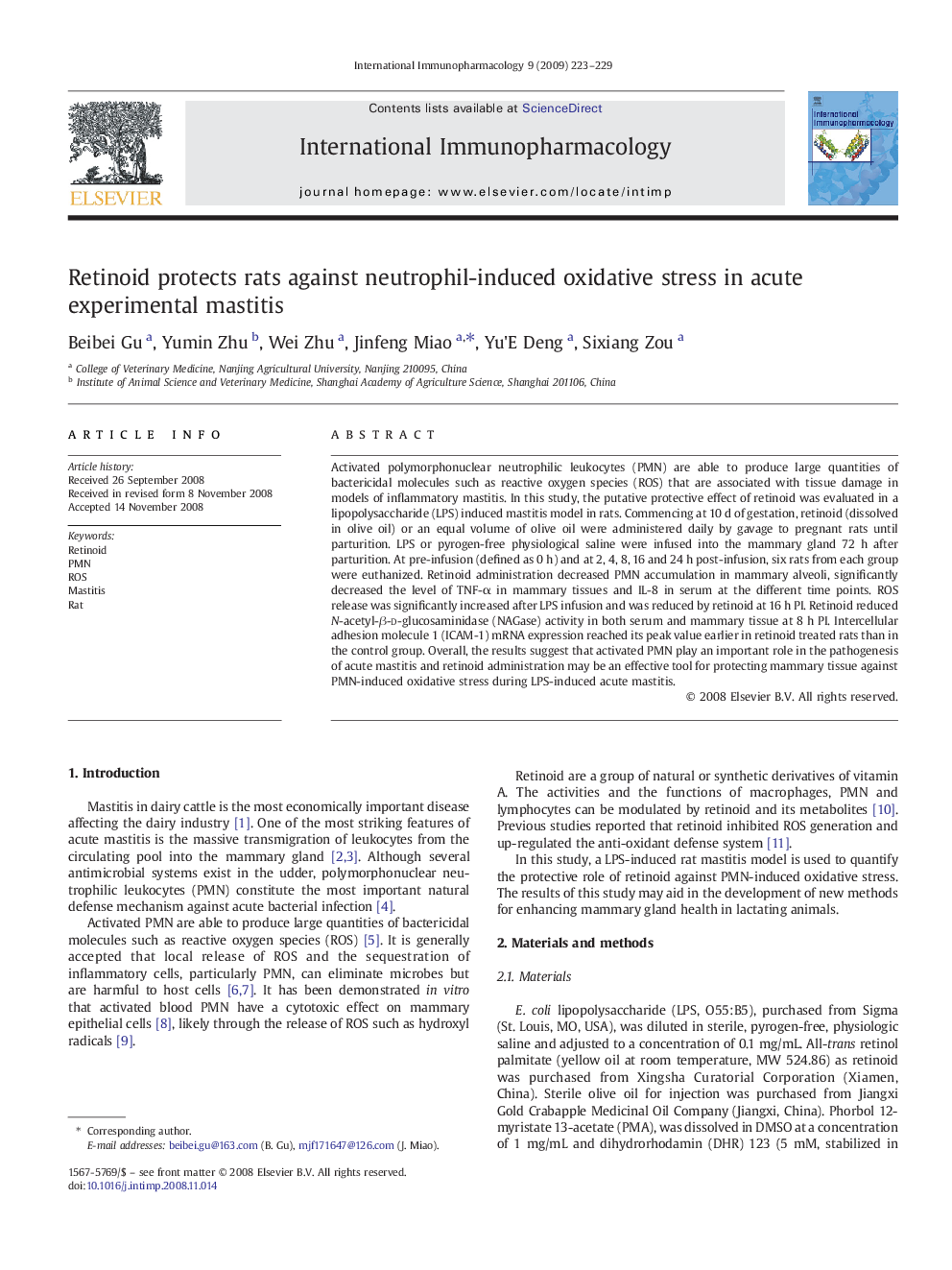| Article ID | Journal | Published Year | Pages | File Type |
|---|---|---|---|---|
| 2541496 | International Immunopharmacology | 2009 | 7 Pages |
Activated polymorphonuclear neutrophilic leukocytes (PMN) are able to produce large quantities of bactericidal molecules such as reactive oxygen species (ROS) that are associated with tissue damage in models of inflammatory mastitis. In this study, the putative protective effect of retinoid was evaluated in a lipopolysaccharide (LPS) induced mastitis model in rats. Commencing at 10 d of gestation, retinoid (dissolved in olive oil) or an equal volume of olive oil were administered daily by gavage to pregnant rats until parturition. LPS or pyrogen-free physiological saline were infused into the mammary gland 72 h after parturition. At pre-infusion (defined as 0 h) and at 2, 4, 8, 16 and 24 h post-infusion, six rats from each group were euthanized. Retinoid administration decreased PMN accumulation in mammary alveoli, significantly decreased the level of TNF-α in mammary tissues and IL-8 in serum at the different time points. ROS release was significantly increased after LPS infusion and was reduced by retinoid at 16 h PI. Retinoid reduced N-acetyl-β-d-glucosaminidase (NAGase) activity in both serum and mammary tissue at 8 h PI. Intercellular adhesion molecule 1 (ICAM-1) mRNA expression reached its peak value earlier in retinoid treated rats than in the control group. Overall, the results suggest that activated PMN play an important role in the pathogenesis of acute mastitis and retinoid administration may be an effective tool for protecting mammary tissue against PMN-induced oxidative stress during LPS-induced acute mastitis.
